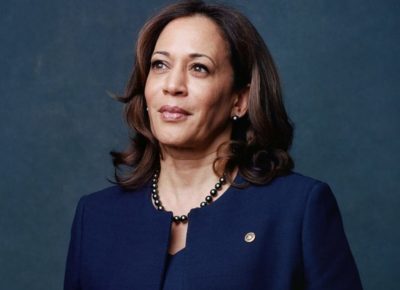As the U.S. presidential election draws closer, Kamala Harris is intensifying her outreach to black and Latino voters, two key demographic groups essential for her campaign’s success. While Harris maintains a significant lead with both groups, recent polling suggests that the margins may not be as wide as in previous elections, raising concerns among some Democrats about voter turnout.
A New York Times and Siena poll found that Kamala Harris holds 78% of the black vote, a decline from the roughly 90% support that Democrats have traditionally enjoyed. Men, in particular, account for much of this drop, a shift that could prove decisive in a race where small swings in key battleground states could determine the outcome. With states like Arizona, Nevada, and Georgia having significant black and Latino populations, Harris faces pressure to galvanize her base in these regions.
Economic Concerns Shift Voter Sentiment On Election Between Between Kamala Harris And Trump
The economy, particularly rising inflation and the cost of living, is a central issue for voters across the country, and black and Latino communities are no exception. Many voters within these groups express dissatisfaction with the current state of the economy under the Biden administration, contributing to an increasing openness toward Donald Trump’s economic policies.
Quenton Jordan, a black voter from Virginia who supported Obama in 2008 but switched to Trump in 2016, voiced concerns about inflation. “It’s tangible things like the cost of goods that make people reconsider,” Jordan said, highlighting the financial pressures many Americans face. In states like Nevada, which has a large Latino population, similar sentiments are emerging. Lydia Dominguez, a Las Vegas resident, remarked that economic struggles are pushing Latinos toward Trump, noting that “it’s no longer taboo” to support the former president.
Even some voters who are leaning towards Kamala Harris acknowledge that economic issues are leading to increased support for Trump within their communities. Diego Arancivia, a former Republican now backing Harris, admitted, “Lots of people will vote for Trump on economics alone.”
Immigration and Border Issues Resonate with Voters
Immigration remains a hot-button issue in the 2024 election, particularly for Latino voters and black voters living near border regions. Donald Trump’s strong stance on border security, including his commitment to deport millions of undocumented migrants, resonates with many who believe the Biden-Harris administration has failed to manage the U.S.-Mexico border effectively.
Rolando Rodriguez, a former Democrat from Texas, expressed frustration with the handling of the border crisis, saying, “I have never before witnessed a disaster like the one we’ve seen under Kamala Harris and Biden.” Similar concerns were voiced by Quenton Jordan, who argued that resources meant for black communities are being diverted to support asylum seekers. Trump has tapped into these sentiments, framing the issue as a threat to both black and Latino communities.
In response, Kamala Harris has ramped up efforts to address these concerns, unveiling her own immigration proposals and emphasizing the Biden administration’s efforts to reduce migrant crossings. However, the Trump campaign has effectively leveraged the issue, framing it as a failure of the current administration, further complicating Harris’s outreach to these crucial voting blocs.
Social Issues and Cultural Values Influence Voter Behavior
Beyond economic and immigration concerns, cultural and social issues are also playing a significant role in the shifting political landscape. Some black male voters, in particular, are turning away from the Democratic Party over disagreements on issues related to gender and sexuality. Political science professor Quadricos Driskell noted that some voters perceive the Democratic Party as embracing social agendas that conflict with traditional views on masculinity and family values.
Clarence Pauling, a barbershop owner and former police officer from South Carolina, articulated this sentiment, saying the Republican Party’s stance on these issues aligns more closely with his religious beliefs. “If you’re going to lead a whole country, you’re supposed to lead them the right way,” Pauling remarked, expressing frustration with the Democrats’ handling of social issues.
In response to these challenges, Kamala Harris is intensifying her engagement with black and Latino communities, launching new initiatives and policy proposals aimed at addressing the concerns of black men. She is also increasing her presence in key swing states, meeting with black entrepreneurs and influential figures in an effort to bolster support. Meanwhile, Trump continues to tout his growing appeal with these voters, confident that his message is resonating across demographic lines.














